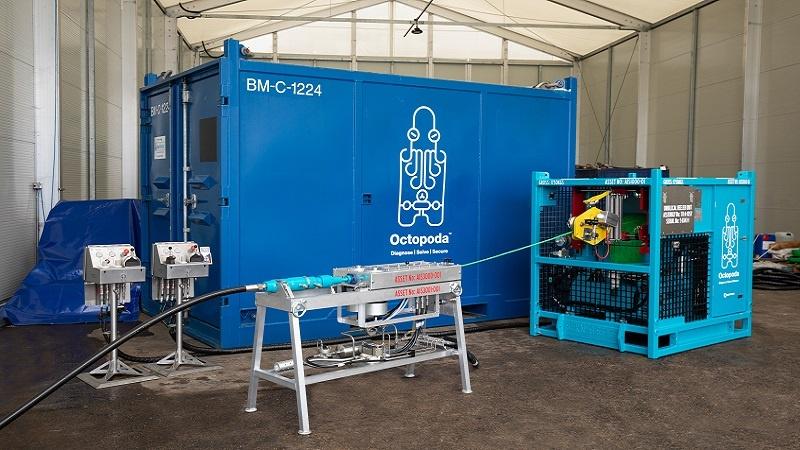
With integrity issues continuing to plague wells across the globe (affecting an estimated 30% of wells around the world), Expro has engineered the Octopoda annulus intervention system to enhance production and assure well integrity without disrupting operations.
According to Expro, the Octopoda is a unique, proven and advanced technological solution which allows direct access to the well annuli which can help bolster production rates, firm up well integrity and allows customers to regain shut in wells and make them economically profitable again.
With advanced corrosion protection for up to 20 years, Octopoda can help create a sustainable impact on asset production and revenue.
In a recent demonstration of its capabilities, Octopoda was used on a Chevron offshore platform well to intervene the A annulus and replace base oil with water ahead of resin placement on top of the packer.
Chevron had previously seen a 50% reduction in the impact of the resin when it was added to an earlier well containing base oil.
Deploying Octopoda meant Chevron avoiding the use of production tubing for circulation via a stimulation vessel or coil. This eliminated the need for communication between the production tubing and the A annulus meaning the barrier remained intact between the reservoir and the A annulus.
Expro displaced the base oil and established circulation by pumping fresh water through the annulus intervention system. Despite experiencing space limitations caused by control lines, clamps, and centralisers.
This was the first time the A annulus had ever been intervened using a conveying hose. Furthermore, it proved the efficiency benefits of Octopoda’s annular intervention over conventional practices by reducing time, costs and personnel. The operation lasted three days compared to an estimated 10-13 days, avoiding the conventional lube and bleed method or the need to punch and circulate the well.
Octopoda’s small footprint compared to a pumping vessel or unit reduced lifting risks and required only a two-man crew from Expro. The base oil was collected in a closed loop in the system, avoiding its exposure to the environment.
